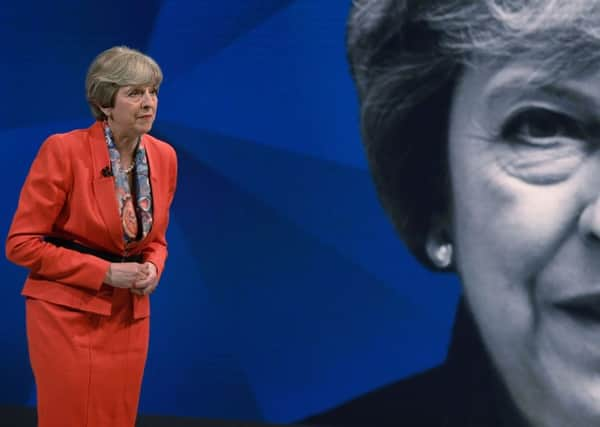Tom Richmond: The Tories cannot expect a big majority by default


Though the Tory leader will almost certainly win a personal mandate, her stated objective, in seven days time, the size of her Commons majority – and the flexibility that this will afford – depends on the extent to which the support for Ukip, the Lib Dems and SNP is squeezed, and how this plays out at the ballot box.
That Mrs May can no longer count on the Labour vote collapsing, despite the campaign exposing Jeremy Corbyn’s fundamental flaws when it comes to national security and economy, reflects poorly on the Conservative campaign.
Advertisement
Hide AdAdvertisement
Hide AdHaving reneged upon her promise not to call a snap election to rubber-stamp her Brexit strategy, and catch out her opponents, it appears the last people to learn about this volte-face was the organisation responsible for Mrs May’s re-election – Conservative Central office.
And the reason is this. Like her predecessor David Cameron who took the country for granted over Britain’s membership of the European Union, Mrs May – and her complacent top team – started to believe their own superiority at a time when electorates have never been more fickle. What’s gone awry? The very decision to call an election smacked of opportunism and at odds with the Tory leader’s ‘strong and stable’ mantra. The terms of the Fixed Terms Parliament Act, which was supposed to prevent such a scenarios, necessitated a campaign of at least 25 days – sufficient for Mr Corbyn to hone the campaigning skills that saw him win two Labour leadership contests.
The PM has also been badly-advised by her two key aides, Nick Timothy and Fiona Cunningham, who have fallen out over the so-called ‘dementia tax’ – both are guilty of not thinking through the consequences of this back-of-a-postage-stamp whim – which enabled Brexit, the issue on which the election was called, to be relegated down the agenda. This is a manifesto, not a university thesis. Mrs May needs far better advice than this.
Now the Tories have just seven days to shake off this inertia, starting with tomorrow’s BBC Question Time special in the swing seat of York. What should Mrs May do?
Advertisement
Hide AdAdvertisement
Hide AdFirst, she should follow her party’s example in York and challenge each Minister, and candidate, to explain how they intend to become global ambassadors for their constituency and their country. It’s time to fight this election on the front foot, as Mrs May has started to do again, and to set out a positive post-Brexit vision. The problem is she’s not great at thinking on her feet.
Second, Mrs May needs to encourage her Ministers to talk in plain language rather than the jargon of Whitehall. When the Tories launched a well-intended initiative on domestic violence, Home Secretary Amber Rudd could not explain how this would work in practice.
Third, the British Airways debacle following a monumental IT glitch justifies the need for the Tories to prove their mettle as a party for consumers (as well as workers). Where has the empathy and support been for those whose travel plans were ruined and who now find themselves battling officialdom for recompense?
Fourth, Mrs May’s exemplary leadership in response to the Westminster and Manchester terror attacks does not preclude her from answering serious questions about whether reductions in police manpower, cuts she presided over as Home Secretary, compromised Britain’s safety? She’s not above criticism.
Advertisement
Hide AdAdvertisement
Hide AdFifth, the Tory leader needs to be far more convincing when it comes to the NHS and social care. Ten days after her now infamous U-turn, this issue is still proving to be deeply damaging for the Conservatives on the doorsteps. She’s losing the argument when it comes to public services.
When Mrs May announced in late April that she was going back on her word and calling an early election, I warned that she would be left diminished because she was effectively trading her trustworthiness – her greatest asset since assuming office last July – for party political advantage.
I’m still of this view. Even though the PM did not want the build up to the 2020 election being dominated by the conclusion of Brexit talks, and the threat of a second vote on Scottish independence, she became a hostage to fortune after assuming, wrongly, that this would be the sole issue on the ballot paper. It’s not. The future of Britain’s public services, like schools, the NHS and policing, is also at stake – and it was the height of arrogance to assume that this would not be the case.
And, while I’m fairly sure that the country will back Theresa May on June 8, there’s no guarantee that the Tories will enjoy a landslide that compares with Margaret Thatcher’s win in 1983. For, if the party of business and government can’t run an election campaign that it called on its terms, why should it be given a thumping majority by default because Labour’s plans don’t stack up?
Mrs May has just seven days to provide an adequate answer – or her next administration will be in trouble before it even begins the hard work of Brexit.